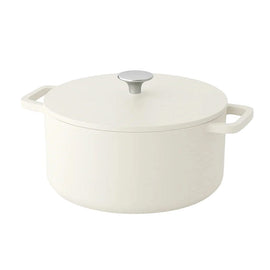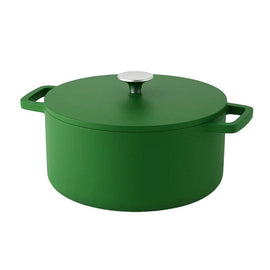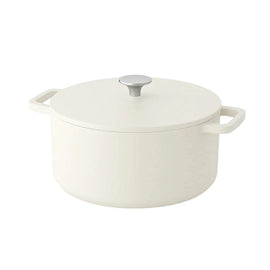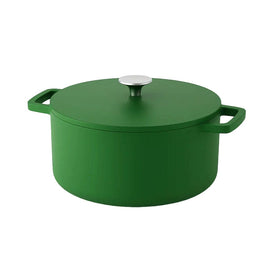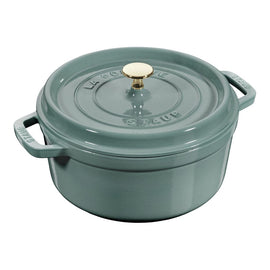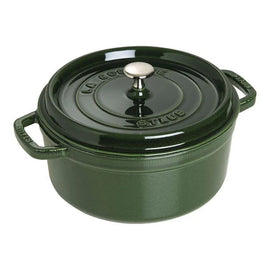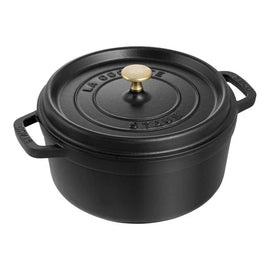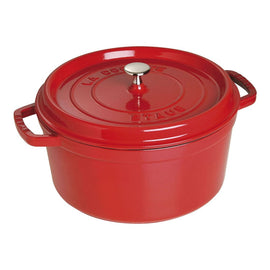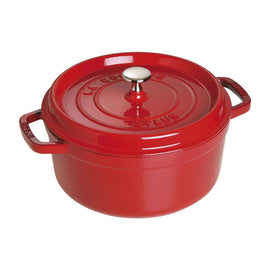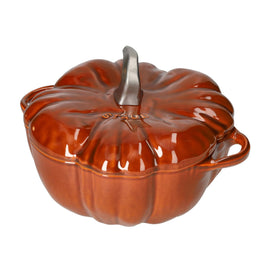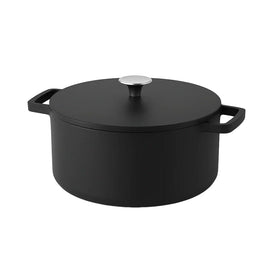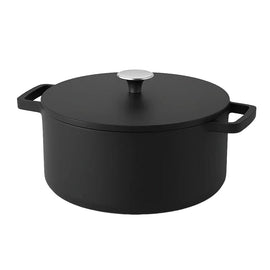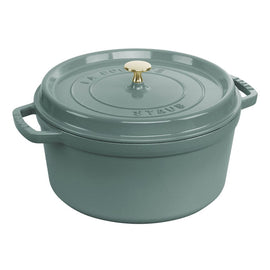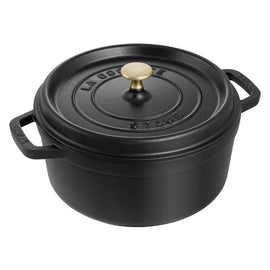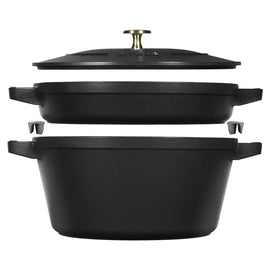Frequently asked questions about Cast iron pans
Yes, all cast iron pans are suitable for induction hobs thanks to the magnetic material.
Yes and no, not every cast iron pan needs to be seasoned. Only pans made of uncoated cast iron (without enamel) need to be seasoned to prevent rust and develop a non-stick coating. Cast iron pans from brands like Le Creuset and Staub have an enamel coating on the inside and therefore don't need to be seasoned.
Yes, a cast iron skillet is perfect for the BBQ or Kamado. The material can withstand high temperatures and ensures even heat distribution. Ideal for grilling, baking, and even desserts. Clean and grease the pan after use to prevent rust.
Baking bread in a cast-iron pan is perfect for a crispy crust and a light, airy interior. Preheat the pan as the oven heats, place the risen dough in the hot pan (optionally on parchment paper), and bake the bread first with a lid for steam, then uncovered to allow the crust to brown and crisp nicely.
A cast iron pan is relatively heavy compared to other pans. The weight depends on the size, but on average, a small pan (20 cm) weighs around 2.5 to 3 kg, while a large Dutch oven (28–30 cm) can weigh 5 to 7 kg, including the lid. Brands like Le Creuset and Staub are known for their sturdy, thick cast iron, which ensures good heat distribution but also adds extra weight.
The main difference between enameled and unenameled cast iron is the finish. Enameled cast iron has a protective enamel layer that prevents rust and eliminates the need for seasoning. These pans are ready to use and easy to clean. Unenameled cast iron, on the other hand, has no protective layer and requires seasoning. This process creates a natural non-stick surface and protects the pan from rust. If you still want to season an enameled pan for extra non-stick properties, apply a thin layer of oil, heat the pan at a low temperature, and repeat several times. This combines the advantages of enameled cast iron with an improved non-stick coating.
A cast iron pan is not dishwasher safe, as this can damage the pan's protective coating. This can lead to rust formation and shorten the pan's lifespan. Therefore, clean your cast iron pan by hand, preferably with warm water and a soft brush. Do not use harsh cleaning agents, as these can damage the pan. By properly maintaining your pan, it will stay in top condition for years and retain its natural non-stick coating.
Everything you need to know about cast iron pans
A cast iron pan is an indispensable addition to any kitchen. These pans are known for their excellent heat conduction , durability, and versatility. They're ideal for preparing all sorts of dishes, from roasts to stews and even baked bread. Whether you're a novice cook or a seasoned chef, a cast iron pan is an investment that will more than pay for itself. Below, you'll discover everything about the types, uses, and maintenance of these pans.

What types of cast iron pans are there?
Choosing the right cast iron pan starts with understanding the different types and their uses.
-
Dutch Ovens : Perfect for stews , braised meats, or preparing sauces. These pans come in various sizes and colors, suitable for both cooking and serving.
-
Frying pans : Ideal for frying meat, fish, or vegetables. Thanks to the cast iron base, you get even cooking and a perfect crust.
-
Grill pans : These pans are ideal for grilling vegetables, fish or meat, and provide those characteristic grill stripes.
-
Woks : Suitable for quick preparations such as stir-fries. A cast iron wok retains heat for a long time, which is ideal for high temperatures.
-
Saucepans and saucepans : Ideal for smaller dishes or making sauces.
-
Cookware sets : Want to use multiple types of cast iron cookware? Then choose a complete cookware set to always have the right pan at home.
What should you pay attention to when purchasing a cast iron pan?
Buying a cast iron pan requires attention to a few important aspects:
-
Heat source : All cast iron pans are suitable for gas, induction, ceramic and electric cooking.
-
Size : Choose a pan that fits your household. For a larger family, a pan of at least 28 cm is useful, while a smaller pan is ideal for individual dishes.
-
Weight and grip : Cast iron pans are heavy. Therefore, choose a pan with sturdy handles for safe use.
-
Color and design : A cast iron pan will last for years, so choose a color and style that suits your kitchen.
How to maintain and clean a cast iron pan?
Good maintenance is essential to keep your pan in top condition:
Burn-in
Rub the pan with a thin layer of oil and heat it in the oven. This creates a natural non-stick coating and protects against rust.
Cleaning
Use hot water and a soap-free brush or sponge. Dry the pan immediately to prevent rust formation.
Save
Store your pan in a dry place. If necessary, place a paper towel between the pan and the lid to prevent moisture from building up.
Order your cast iron pan today
With a cast iron pan, you're investing in quality, durability, and versatility. Browse our range and discover the pan that perfectly suits your cooking needs. From Dutch ovens to grill pans , you're guaranteed to find your ideal cast iron pan at KookGigant.
